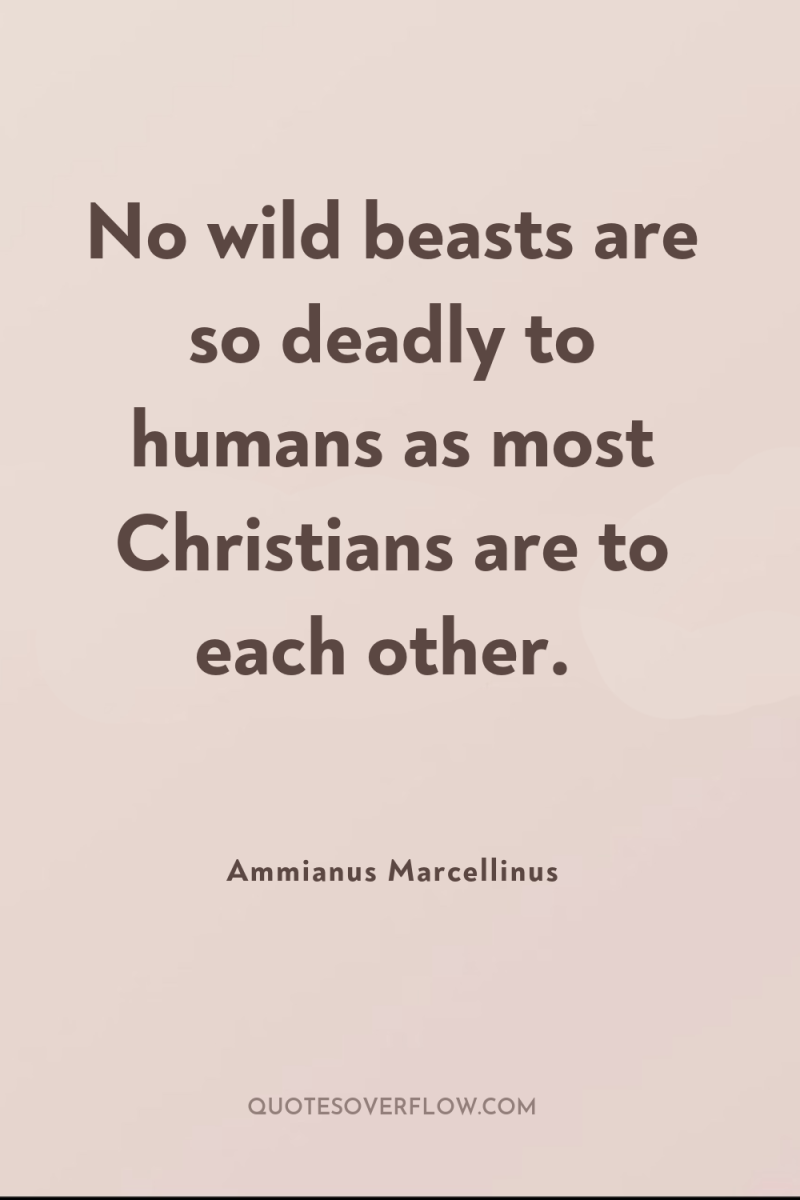1
There is no indication that any church official suggested or supported the emperor's action against gay people. On the contrary, the only persons known by name to have been punished for homosexual acts were prominent bishops.John Boswell
2
But its exclusive character and irreconcileable hostility to the religious cults and ceremonies with which the whole social life of the city-state and the empire were inseparably connected at every turn, brought the Christians into inevitable conflict with the government and with public opinion. To the man in the street, the Christian was an anti-social atheist who would take no part in the public feasts and the games, which played such a large part in city life. To the authorities he was a passive rebel, who would neither take his share of municipal offices nor pay loyal homage to the Emperor. Hence the rise of persecution, and the driving of the Christians into an underground existence, as a proscribed sect. The Church grew under the shadow of the executioner's rods and axes, and every Christian lived in the peril of physical torture and death. The thought of martyrdom coloured the whole outlook of early Christianity. But it was not only a fear, it was also an ideal and a hope. For the martyr was the complete Christian, he was the champion and hero of the new society and its conflict with the old, and even the Christians who failed in the moment of the trial - the lapsi - looked on the martyrs as their saviours and protectors .Christopher Henry Dawson

3
No wild beasts are so deadly to humans as most Christians are to each other.Ammianus Marcellinus
4
It is no coincidence that, on all four sides, in all four corners, the borders of the Roman Empire stopped where wine could no longer be made.Neel Burton
5
Great empires are not maintained by timidity.Tacitus
6
The claim at the heart of this book has been carefully researched by several generations of scholars and is orthodox in academic circles, if not beyond. Christians under the Roman Empire were neither constantly persecuted nor martyred in huge numbers for their faith. They were prosecuted from time to time for alleged sedition, holding illegal meetings or refusing to sacrifice to the emperor. They were, like other convicts, sometimes tortured and executed in horrible ways. They seem to have been regarded by many Romans with distaste as a particularly silly superstition. But Christian stories of thousands of individual and mass martyrdoms over centuries have at best a limited basis in historical fact, and in many cases are sheer fiction.Teresa Morgan
7
For, from the time that the Bishop of Rome had gotten to be acknowledged for bishop universal, by pretence of succession to St. Peter, their whole hierarchy, or kingdom of darkness, may be compared not unfitly to the kingdom of fairies; that is, to the old wives' fables in England concerning ghosts and spirits, and the feats they play in the night. And if a man consider the original of this great ecclesiastical dominion, he will easily perceive that the papacy is no other than the ghost of the deceased Roman Empire, sitting crowned upon the grave thereof: for so did the papacy start up on a sudden out of the ruins of that heathen power.Thomas Hobbes
8
When you fear nothing, you have nothing to fearS.F. Chandler
9
Mankind in the aggregate I have found to be brutish, ignorant and unkind, whether those qualities were covered by the coarse tunic of the peasant of the white and purple toga of a senator. And yet in the weakest of men, in moments when they are alone and themselves, I have found veins of strength like gold in decaying rock; in the cruelest of men, flashes of tenderness and compassion; and in the vainest of men, moments of simplicity and grace.John Williams
10
I see, I see! From association Messala, in boyhood, was almost a Jew; had he remained here, he might have become a proselyte, so much do we all borrow from the influences that ripen our lives; but the years in Rome have been too much for him. I do not wonder at the change; yet”--her voice fell--“he might have dealt tenderly at least with you. It is a hard, cruel nature which in youth can forget its first loves.Unknown
11
It is certain that the labors of these early workers in the field of natural knowledge were brought to a standstill by the decay and disruption of the Roman Empire, the consequent disorganisation of society, and the diversion of men's thoughts from sublunary matters to the problems of the supernatural world suggested by Christian dogma in the Middle Ages. And, notwithstanding sporadic attempts to recall men to the investigation of nature, here and there, it was not until the fifteenth and sixteenth centuries that physical science made a new start, founding itself, at first, altogether upon that which had been done by the Greeks. Indeed, it must be admitted that the men of the Renaissance, though standing on the shoulders of the old philosophers, were a long time before they saw as much as their forerunners had done.Thomas Henry Huxley
12
Up till now it has been thought that the growth of the Christian myths during the Roman Empire was possible only because printing was not yet invented. Precisely the contrary. The daily press and the telegraph, which in a moment spreads inventions over the whole earth, fabricate more myths (and the bourgeois cattle believe and enlarge upon them) in one day than could have formerly been done in a century.Karl Marx